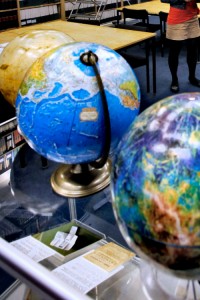Students embark on research year overseas

Students Estifa’a, Leevan and Lorenzo will soon be undertaking their research project at a partner institution overseas. These students, who have completed year 3 of their undergraduate degree, are the first of our students to embark on their research project overseas as part of the MPhys Physics with a Year Abroad degree.
Estifa’a will be working with scientists from the Canadian group, ALPHA – Canada, a group in the international ALPHA project based at CERN. This group studies the properties of antimatter atoms in order to attempt to answer some of the most fundamental questions in modern physics. Having previously successfully isolated antimatter atoms in a “magnetic bottle”, their research now focuses on studying the gravitational behaviours of these atoms, as well as using microwave spectroscopy to study the charge, parity and time reversal of anti–hydrogen atoms.
I wanted to embark on a journey that will push me outside of my comfort zone, challenge my perceptions and help me gain self-confidence. I will have the chance to meet people from diverse backgrounds in a research environment outside the UK. It was also the idea of being involved in physics research that has a real effect on our understanding of science that really excited me, as well being a part of a research team that is trying to make scientific contributions of historic importance. Estifa'a
Leevan’s work is a multi-disciplinary project with collaborations between Neuroscience, Chemistry and the Bio21 institute in Melbourne. It will focus on the use of fluorescent nanodiamonds for biological imaging.
This year abroad opportunity will provide me with the perfect platform from where I will be able to both experience what the field of medical physics research would entail and what a life would be like after university if I continued my academic work and became a researcher. Leevan
Lorenzo will be taking part in a research project at TRIUMF, which is one of the world’s leading subatomic physics laboratories, based in Canada, focusing on particle, nuclear and accelerator physics. He will be joining the DRAGON experiment, which aims at recreating and studying nucleosynthesis processes that happen within the cores of stars as a product of high energy nuclear fusion reactions.
This placement will give me the opportunity to have first-hand experience of what a career in Experimental Physics would be like, therefore potentially helping me in further career choices. Lorenzo

